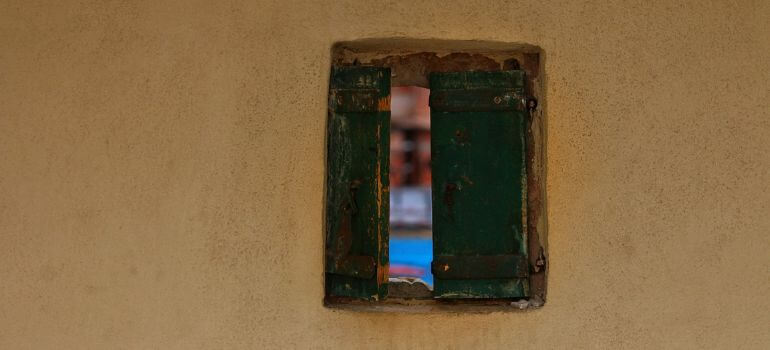As a homeowner with wood windows, one of the most important decisions you’ll make is whether to repair or replace them. This choice can be difficult, as both options have pros and cons to consider. Here are some expert insights to help you weigh your options and make an informed decision.
Key Takeaways:
- Repairing wood windows can preserve the original charm of your home and be a cost-saving option compared to replacement.
- However, repairs may have a limited lifespan and could result in recurring issues.
- Replacing wood windows can improve energy efficiency, functionality, and aesthetics, but comes at a higher upfront cost.
- Consider factors such as the overall condition of your windows, the historical significance of your home, your budget, energy efficiency goals, and long-term maintenance requirements when making your decision.
- Ultimately, the best solution for your home will depend on your unique circumstances.
Understanding the Condition of Your Wood Windows
Prior to deciding whether to repair or replace your wood windows, it’s essential to evaluate their condition. Some common problems may require repairs, including rotting wood, broken glass, or malfunctioning hardware. In contrast, certain indicators may point to the need for a complete replacement.
Common issues that require repairs
| Issue | Description |
|---|---|
| Rotting Wood | Moisture damage or age can cause the wood to rot, compromising the window’s strength and insulating qualities. |
| Broken Glass | Cracks, fogging, or chips in the glass can weaken the window’s energy efficiency, appearance, and function. |
| Malfunctioning Hardware | Worn-out or faulty hardware, such as locks, hinges, and handles, can impact the window’s operation, safety, and security. |
Signs it’s time for a complete replacement

- Severe damage or decay to the frame or sash
- Substantial air or water leaks, causing drafts or water damage
- Poor insulation or soundproofing, leading to discomfort or high energy bills
- Color fading or peeling paint, affecting the window’s appearance
Evaluating the condition of your wood windows will determine the feasibility of repairs and guide your decision-making process. In the next sections, we will explore the advantages and disadvantages of repairing or replacing wood windows, allowing you to make a more informed choice for your home.
Pros and Cons of Repairing Wood Windows
When determining whether to repair or replace wood windows, it’s important to consider the advantages and disadvantages of repairing them. Here are the pros and cons:
| Pros of Repairing Wood Windows | Cons of Repairing Wood Windows |
|---|---|
| Preserving original charm: Repairing wood windows can maintain the unique character and appearance of historic homes. | Limited lifespan of repairs: Repaired windows may have a shorter lifespan and need more frequent maintenance. |
| Cost-saving: Repairing wood windows is generally less expensive than replacing them. | Potential for recurring issues: Repaired windows can develop similar issues down the line, requiring additional repairs. |
In summary, repairing wood windows can be a viable option for those looking to save money and maintain the original character of their home. However, it’s important to note the potential for recurring issues and the shorter lifespan of repairs.
Pros and Cons of Replacing Wood Windows
When deciding whether to replace or repair your wood windows, you need to weigh the advantages and disadvantages of each option. In this section, we will explore the benefits and drawbacks of replacing your old wood windows with new ones.
Pros of Replacing Wood Windows
Upgrading your wood windows can enhance your home’s energy efficiency, increase its resale value, and provide a fresh look that complements your decor style. Below are some of the key advantages of replacing your wood windows:
| Better Energy Efficiency | New windows are more energy-efficient and can lower your heating and cooling costs. |
|---|---|
| Improved Functionality | New windows operate more smoothly and require less maintenance than older windows. |
| Enhanced Aesthetics | Modern windows come in a range of styles, materials and colours, that can complement any architectural design. |
| Higher Resale Value | New, energy-efficient windows can increase your home’s value, making it more attractive to potential buyers. |
Cons of Replacing Wood Windows
As much as there are advantages to replacing your wooden windows, there are also several drawbacks to consider:
| Higher Upfront Costs | Replacing your windows with new ones can be more expensive than repairing them. |
|---|---|
| Possible Alteration of Historical Appeal | If your home is in a heritage district or registered as a historical property, replacing your wood windows could impact its original appearance. |
Ultimately, whether to repair or replace your wood windows is a personal decision that depends on your specific situation. Understanding the pros and cons of each option is a vital first step in making an informed choice.
Factors to Consider in the Decision-making Process
Making a decision between repairing or replacing your wood windows is a significant investment for any homeowner. To make an informed choice, it’s crucial to consider certain factors that will impact your decision. Here are some factors to keep in mind:
- The overall condition of the windows: If wood rot or damage is isolated to one or two windows, minor repairs may suffice. However, if the majority of windows in your home are damaged, it may not make sense to repair them all.
- Your budget: The costs of repairs and replacement can vary widely. While repairs may seem like the less expensive choice upfront, it’s important to factor in long-term maintenance requirements.
- Historical significance of your home: If you own a historic home, keeping the original windows is often desirable. However, if the wood windows are beyond repair, and replacement is necessary, it’s essential to consider modern alternatives that maintain the integrity of the home’s design while offering modern performance benefits.
- Energy efficiency goals: If your current windows are drafty or outdated, replacing them with energy-efficient models can provide significant energy savings over time.
- Long-term maintenance requirements: If you plan on staying in your home for the long run, it’s essential to consider the maintenance requirements of both repaired and new windows.
By taking into account these critical factors, you can make an informed decision that best serves your home’s needs. We recommend discussing your options with a trusted professional before making a final decision.
Conclusion
Deciding whether to repair or replace your wood windows is a significant decision that requires careful consideration. By understanding the condition of your windows, weighing the pros and cons of each option, and considering crucial factors like your budget and energy goals, you can make the best choice for your home.
At the end of the day, there is no one-size-fits-all solution. Each homeowner’s situation is unique, and thus, their decision may differ. However, whether you choose to repair or replace your windows, remember that maintaining the historical appeal of your home is important.
We hope that our expert insights have provided you with valuable information to assist you in making an informed decision. If you have further questions or concerns, please do not hesitate to reach out to us.
FAQ
Can wood windows be repaired instead of replaced?
Yes, wood windows can often be repaired instead of replaced. It depends on the specific condition of the windows and the extent of the damage. Repairing wood windows can be a cost-effective option and can help preserve the original character of your home.
What are some common issues that may require wood window repairs?
Common issues that may require wood window repairs include rotting wood, broken glass, malfunctioning hardware, and worn-out seals. These issues can often be addressed through repairs, saving you the expense of replacing the entire window.
What are the pros of repairing wood windows?
There are several pros of repairing wood windows. One advantage is that it allows you to maintain the original charm and character of your home. Repairing windows is also generally more cost-effective than replacement, especially for single or isolated issues.
Are there any cons to repairing wood windows?
Yes, there are some cons to repairing wood windows. The repaired windows may have a limited lifespan and may require ongoing maintenance. Additionally, there is a possibility of recurring issues or the need for further repairs in the future.
What are the advantages of replacing wood windows?
Replacing wood windows can offer several advantages. New windows are often more energy-efficient, which can lead to cost savings on heating and cooling bills. They also provide improved functionality and can enhance the overall appearance of your home.
Are there any drawbacks to replacing wood windows?
While replacing wood windows has its benefits, there are also some drawbacks to consider. The upfront cost of window replacement can be higher compared to repairs. Additionally, replacing windows may involve altering the historical appeal of your home, which could be a concern for some homeowners.
What factors should I consider when deciding whether to repair or replace my wood windows?
When making the decision between repairing or replacing wood windows, consider factors such as the overall condition of the windows, your budget, the historical significance of your home, your energy efficiency goals, and the long-term maintenance requirements. Assessing these factors will help you make an informed choice.
How can I make the best decision for my wood windows?
To make the best decision for your wood windows, thoroughly assess their condition and consult with a professional if needed. Evaluate the pros and cons of repair and replacement, considering your unique circumstances. Take into account factors such as cost, aesthetics, energy efficiency, and the long-term value of your home.



